

|
|
The Simon Wiesenthal Collection
R1 - America - Docurama / Cinedigm Review written by and copyright: Eric Cotenas (27th April 2015). |
|
The Film
 Genocide: Oscar - Best Documentary, Features - Arnold Schwartzman and Marvin Hier (win) - Academy Awards, USA (1982) The Long Way Home: Oscar - Best Documentary, Features - Martin Hier and Richard Trank (win) - Academy Awards, USA (1998) Gold Hugo - Documentary - History/Biography - Mark Jonathan Harris (win) - Chicago International Film Festival (1997) Audience Award - Mark Jonathan Harris (win) - Palm Springs International Film Festival (1998) Grand Jury Prize - Documentary - Mark Jonathan Harris (nominated) - Sundance Film Festival (1997) 2nd Place - Best Documentary - Mark Jonathan Harris (win) - Valladolid International Film Festival (1997) Although the name Simon Wiesenthal (1908-2005) may be more familiar to the general public because of the Mormon Church taking it upon themselves to offend his family and the Jewish populace in general by performing a posthumous proxy Mormon baptism on him, Wiesenthal was an Austrian-born Jewish writer who survived the Holocaust and became a Nazi hunter. Founding two Jewish Historical Documentation Centers to gather information for future war crimes trials and aiding refugees in finding lost relatives, Wiesenthal was instrumental in locating Adolf Eichmann and Franz Stangl as well as revealing the Nazi pasts of Austrian presidential candidate Kurt Waldheim and four members of chancellor Bruno Kreisky's cabinet. Cinedigm documentary label Docurama's eleven disc set The Simon Wiesenthal Collection presents eleven of the twelve documentaries produced by Moriah Films a division of the Simon Wiesenthal Center of philanthropists Jack and Pearl Resnick Film Division of Yeshiva University of Los Angeles. All of the films were co-written and produced by Rabbi Marvin Hier while the first three films were directed by Arnold Schwartzman, The Long Way Home was directed by Mark Johnathan Harris, and the remaining seven were directed by Richard Trank. The Academy Award-winning Genocide (1982) starts off the set. Introduced by Wiesenthal and narrated by Elizabeth Taylor and OrsonWelles, and that's after a spectacularly-animated title sequence scored by Elmer Bernstein and the Royal Philharmonic Orchestra, Genocide begins with the history of the Jewish people in Europe and their scapegoating by the Romans (as political rivals), the Inquisition (as "Jesus killers"), and the Soviets (as economic rivals) as well as the anti-Semitic homilies of John Chrysostom and Martin Luther's hateful treatises following his unsuccessful attempts to convert them. There was agitation against the Jews in in the aftermath of the First World War and Europe's economic collapse before "Austrian upstart" Adolf Hitler's made known his desire to purify Aryan society (which also included the expunging of blacks, gypsies, homosexuals, the mentally and physically handicapped, and was later extended to social democrats, communists, Jehovah's Witnesses, and any political opposition). His campaign set out not only to eradicate Jewish lives but Jewish life, not only destroying their towns, homes, and belongings but also their contributions to German culture and industry. Those who were able to escape before the deportations found neighboring countries as well as America and Latin America refused refugees, the Pope had no comment about the situation, and appeals to America and the Great Britain went unanswered (the efforts of Swedish diplomat Raoul Wallenberg in Hungary being an exception). Indeed, just as America hesitated to get involved in the war until Pearl Harbor was attacked, Great Britain did not go (back) to war with Germany until Hitler invaded Poland. 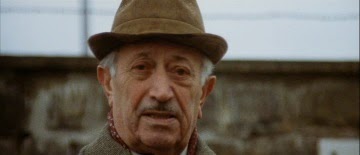 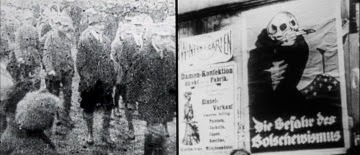 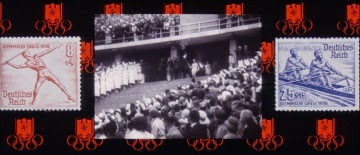 In a way, Genocide functions as a sort of overview key text to the subsequent Moriah productions. Echoes That Remain (1991) narrated by Martin Landau and Miriam Margoyles focuses entirely on life in the shtetl (small towns throughout Central and Eastern Europe with a large Jewish population) before the war. In a lyrical meditation on "the world that was" through voices that were "stilled forever", the film conveys the timelessness of Jewish traditions of birth, bar mitzvah, marriage, death as well as attitudes towards charity and the life-long dedication to learning (including the application of the Talmud in everyday life). Just as archival photographs are compared to centuries old paintings to demonstrate a continuity of tradition, archival photographs of village life are also contrasted with the few buildings, streets, and ruins that survive. Narrated by Whoopi Goldberg, Jean Boht, Patrick Stewart, Margoyles, and Ben Kingsley, the concentration of Liberation (1994) is only tangentially on the Jews, appropriately so as it expands on the Genocide's suggestion that the plight of the Jews was low on the priorities of the Allies until the Soviets and then Eisenhower's troops came upon the camps and war correspondents documented the atrocities. Liberation out of the context of this series might indeed come across as another World War II documentary (if a little too broad in its coverage) with the asides to Jewish deportation and the death camps as glossed-over subject matter.  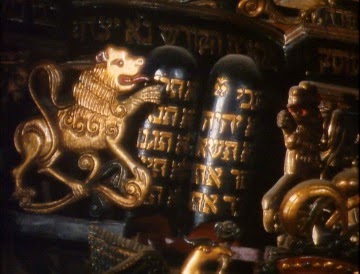  The Academy Award-winning The Long Way Home (1997) and In Search of Peace (2001) focusing on the years between the liberation and the establishment of an independent Israel. The Long Way Home, narrated by Morgan Freeman and featuring the voices of Ed Asner, Sean Astin, Landau, Margoyles, David Paymer, Nina Siemaszko, Helen Slater, and Michael York and the onscreen testimony of survivors, follows the tumultuous events in Germany between the liberation in 1945 to 1948. Starting with the shock of the American soldiers upon seeing the conditions at the camp and the prisoners upon seeing themselves through strangers eyes, both the Jews and their rescuers wonder if and how life will ever be normal again. Classified as displaced persons' camps, Jews and other former prisoners try to negotiate the chaos of post-war Germany and make their ways to homes and families that no longer exist. Discovering that there was no longer a place for them in their villages as anti-Semitism still exists and returning Jews have been murdered as a warning to others. Consigned to underequipped Displaced Persons' camps, conditions are scarcely better than the concentration camp (as observed by Eisenhower and an American representative investigating the army's treatment of the displaced persons). The light at the end of the tunnel seems to be the notion of The Land of Israel in Palestine where several thousand Jews had managed to escape Hitler earlier on, but British interests particularly the Labour government in the territory continue to restrict immigration. As Jewish resistance fighters in Europe and Palestine attempt to circumvent British law, members of the Third Reich go on trial at Nuremberg and claim ignorance of the death camps. In Search of Peace (2001) narrated by Michael Douglas featuring the voices of Asner, Anne Bancroft, Richard Dreyfuss, Margoyles, and York concentrates on Israeli's first two decades (1948-1967) as the British leave Palestine and Arabs oppose a partitioning of the country, stating that their seven hundred year occupation supersedes Zionist claims of a continuous Jewish presence. Although the United Nations vote favors the Israelis, prime minister David Ben Gurian is wary of the subsequent conflict. Golda Meir is sent to America to raise money from American Jewish organizations to purchase arms for defense and returns with twice the amount they originally sought, but internal conflict with the three resistance armies (who Gurian wants to dissolve into the Israeli Defense Force) threaten his authority and the kidnapping of Adolf Eichmann from Argentina threatens Israeli participation in international affairs. 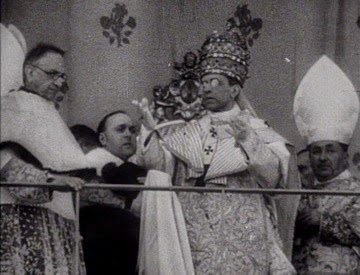 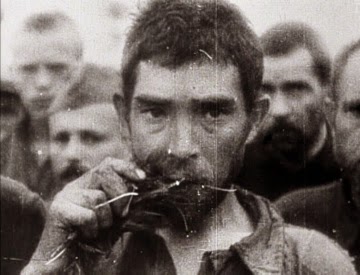 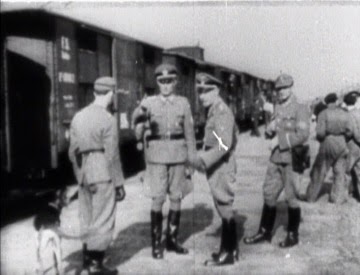 Narrated by Kingsley, Unlikely Heroes (2003) returns to another aspect given only brief mention in Genocide: the Jewish resistance movement and their attempts to save Jews from deportation and transport them to safety as well as other forms of resistance and defiance from prisoners within the camps. Among those profiled are Austrian lawyer Willy Perl who violated British laws concerning immigration to Palestine by illegally transporting thousands of Jews via Greek ships that formerly smuggled alcohol and partisan fighter Leon Kahn who disrupted communication lines, armory transports, and blew up fuel tankers to delay and halt the advances of the German army. Just sixteen when he and his family were taken from Paris, French-American Robert Max Widerman spent his internment in a labor camp attempting to boost the morale of his fellow captives with his musical talent. Years after the war, Widerman would find himself as a prisoner of war in considerably lighter circumstances under the adapted name Robert Clary on the sitcom Hogan's Heroes. Austrian artist/educator Friedl Dicker-Brandeis, whose theories about art therapy for troubled children have influenced subsequent programs, secretly gave art lessons to the children in the Terezin concentration camp the Nazis would pass off to rest of the world as a model self-governing and autonomous ghetto (as depicted in Transport from Paradise). Rabbi's daughter and Swiss housewife Recha Sternbuch traveled into Germany, Austria, France, and Poland and spent her own money on illegal Swiss visas to smuggle over eight hundred Jewish refugees into Switzerland who she sheltered in her own home before finding transport for them to safety in Palestine, Asia, and Latin America. Several times, she crossed the border directly into the path of danger and refused to name any of her accomplices when arrested and prosecuted. Sisters Hanka and Estusia Wajcblum participated in the Warsaw uprising and were sent to Auschwitz where they labored in the munitions plant. Together with prisoners, they smuggled enough gunpowder over a long interval to fashion crude bombs that they used to blow up one of the camp's crematoriums. The final profile is of Rabbi's son turned resistance fighter Pinchas Rosenbaum who boldly passed himself off as an SS officer, a Hungarian Arrow Cross commander, and a government official to head off the arrests and planned murders of Jewish citizens to get them to the safety of the "Glass House", a former glass factory set up by Swiss diplomat Carl Lutz as a safe house for Jews. 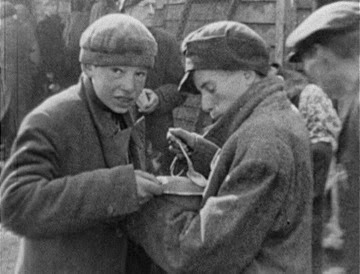 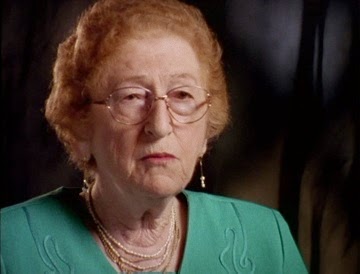  Narrated by Kevin Costner, Ever Again (2006) looks at the spread of twenty-first century anti-Semitism in modern Europe stemming from Neo-Nazi in Germany who see Germans as the real victims of the Holocaust and from fundamentalist imams in the outskirts of France, Belgium, and the United Kingdom as well as a combination of the two influences after September 11th in the French suburbs. Also examined is the expression of anti-Semitic sentiment in Neo-Nazi music and popular culture from stand-up comedy to the words of Nobel Prize winning author Jose Saramago, Irish poet Tom Paulin, as well as former London mayor Ken Livingstone and former French president Jacques Chirac.  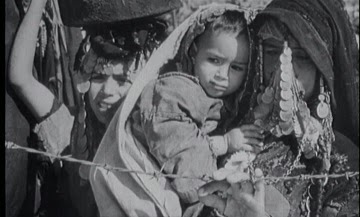  I Have Never Forgotten You: The Life and Legacy of Simon Wiesenthal (2007) details the life of the titular architect-turned-Nazi hunter starting with his beginnings in Austria. When he and his wife Cyla were moved into the Lwów ghetto, he arranged for his wife to be sent to Warsaw with an ID listing her as a non-Jewish Pole and went into hiding. Captured, Wiesenthal was moved from camp to camp ending with Mauthausen where he stayed until May 5th liberation. Although encouraged to rebuild his life, Wiesenthal wanted to participate in the interrogation of SS officers and was asked to write down what he had to contribute, producing a list of over ninety suspected war criminals. He would gather testimony and information on victims and perpetrators for the War Crimes office and then the Office of Strategic Services as well as developing a directory of camp survivors to help reunited them with friends and family (which was how a friend reunited him with his wife) when he would first learn about Adolf Eichmann and continue to independently gather information on his whereabouts as international attention was directed to the threat of the Cold War. Forced to close his documentation center by the economic realities of post-war Europe, Wiesenthal worked from home and took up stamp collecting as a stress-relieving hobby. An anti-Nazi Austrian baron who shared his hobby revealed to him a piece of correspondence with a friend in Buenos Aires who had recognized Eichmann working for the city's water company, leading to his capture by Israel's secret police. He was also able to prove that Anne Frank existed by tracking down the officer who arrested her family, female camp guard-turned-New York housewife Hermine Braunsteiner, as well as Franz Stangl and Gustav Wagner in Brazil. When author Frederick Forsyth approached him in researching the book The Odessa File, he suggested that the author use the details of real camp commandant Eduard Roschmann rather than a fictional one. The film adaptation lead to reports of sightings of Roschmann who escaped to Paraguay upon exposure but died of a heart attack. His career was not without detractors, including Austrian politicians with Nazi pasts as well as Jewish Bruno Kreisky who had four former Nazi party members in his cabinet and accused Wiesenthal of surviving by collaborating with the Gestapo. He also endured criticism for his hunt for Josef Mengele who he insisted was still alive until his remains were positively identified. 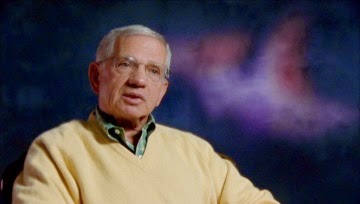 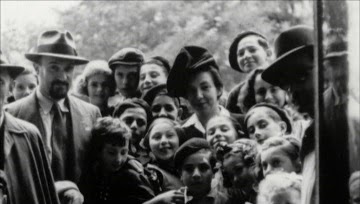  Like Liberation, Winston Churchill: Walking with Destiny (2010) also narrated by Kingsley focuses on the war itself and the life of Churchill who first broached the subject of the Nazi atrocities against the Jews to President Franklin D. Roosevelt, and won over an American congress as public opinion shifted from staying out of the war to offering material assistance to the allies. It Is No Dream: The Life of Theodor Herzl (2012) is narrated by Kinglsey and features Christoph Waltz as the voice of Theodor Herzl (1860-1904), the journalist and playwright turned founder of modern Zionism who promoted the migration to Palestine to form a Jewish state long before the war. Through a series of (limited) photographs of Herzl and passages from his manuscripts, the film documents his attempts to create a Jewish homeland in Palestine in the scandal around the military court's framing of Captain Alfred Dreyfus for trading secrets and the ensuing anti-Semitism (Dreyfus' detractors were mainly Catholic, including the editor of an anti-Semitic newspaper). Based on the book by ambassador Yehuda Avner (1928-2015), The Prime Ministers: The Pioneers (2013) featuring the voices of Sandra Bullock, Waltz, Douglas, and Leonard Nimoy is a profile of Levi Eshkol (voiced by Nimoy), Golda Meir (voiced by Bullock), Yitzhak Rabin (voiced by Douglas), Menachem Begin (voiced by Waltz), and Shimon Peres hosted by Avner who served all of their terms (roughly 1963-1996) as chief aide and speechwriter. The Prime Ministers: The Pioneers is actually the first half of a two-part documentary adaptation of Avner's book with The Prime Ministers: Soldiers and Peacemakers released last November.  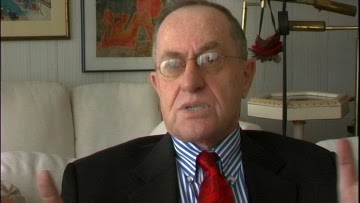 
Video
Docurama's eleven-disc set is an expansion of the 2007 boxed set released by Anchor Bay that featured Genocide, Echoes That Remain, Liberation, The Long Way Home, In Search Of Peace, Ever Again, Unlikely Heroes, and I Have Never Forgotten You. While the 2015 set adds four more newer films, it is missing the documentary short Beautiful Music that was paired with In Search of Peace on the Anchor Bay set. The eleven films are presented on eleven single-layer discs when a few of the shorter documentaries could have been doubled up on dual-layer discs. Genocide was projected at film festivals using a 35mm camera for the Panavision scenes, two simultaneously-running 16mm projectors for the sequences that are presented in split-screen in the video transfer, and eighteen slide projectors. Docurama's progressive, anamorphic 2.35:1 is attractive enough despite unnecessary edge enhancement that effects all of the filmed productions in this set. Echoes That Remain's non-anamorphic, interlaced, fullscreen transfer comes from an older master. While a degree of softness works for the nostalgic tone of the film, there is little to no fine detail on display here. 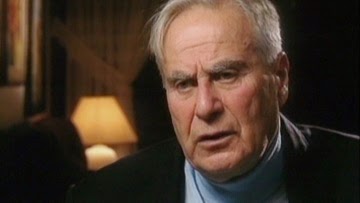 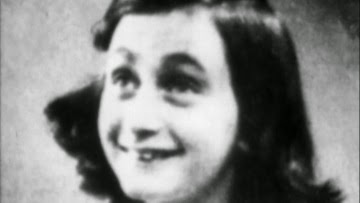 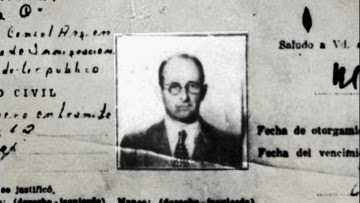 Made up entirely of archival footage, Liberation's progressive, non-anamorphic, fullscreen transfer is variable in condition but that is an issue of the source. A more attentive encode might have resulted in a marginally better presentation. The same can be said of The Long Way Home's progressive, fullscreen transfer. In Search of Peace and Unlikely Heroes were composed of archival footage and newer 24p video footage scanned to film, so it is regrettable that these finished-on-film productions are presented respectively in non-anamorphic 1.66:1 and 1.78:1, interlaced transfers. They get the job done as they are less dependent on animation and graphics, and do not detract from their informative nature or the latter's emotional resonance. Ever Again was also scanned from video to film, and the progressive, anamorphic 1.78:1 transfer only looks as good as the original video (with talking head interviews looking better than the news footage and hidden camera bits), as is the case with I Have Never Forgotten You: The Life and Legacy of Simon Wiesenthal. Winston Churchill: Walking with Destiny and It Is No Dream: The Life of Theodor Herzl and The Prime Ministers were shot in high definition but contain a mix of telecined film clips and standard definition NTSC and PAL video (professionally converted but a little soft and blurry in motion).
Audio
Genocide has a Dolby Digital 2.0 mono track that crisply renders the dialogue, sound effects, and Bernstein's epic Royal Philharmonic orchestral score. Echoes That Remain's Dolby Digital 2.0 stereo track adequately renders the original Dolby Stereo mix and gives additional depth to the Carl Davis score and sound design with surround playback enabled. Liberation was released theatrically with a DTS soundtrack (presumably DTS Stereo), but the Dolby Digital 2.0 stereo track gets the job done with the dialogue, amped-up gunfire sound effects, and another Davis orchestral score. The Long Way Home was also released theatrically with a DTS Stereo track, and the Dolby Digital 2.0 stereo track is serviceable, although the orchestral scoring of Lee Holdridge does not have quite the grandeur of Bernstein or Davis. In Search of Peace, Unlikely Heroes, Ever Again, I Have Never Forgotten You: The Life and Legacy of Simon Wiesenthal, Winston Churchill: Walking with Destiny were released theatrically with Dolby Digital mixes, and the Dolby Digital 2.0 stereo tracks are sufficient (although I have not been able to ascertain if these were 5.1 titles) while It Is No Dream: The Life of Theodor Herzl and The Prime Ministers have standard stereo soundtracks encoded in Dolby Digital 2.0 with no issues.  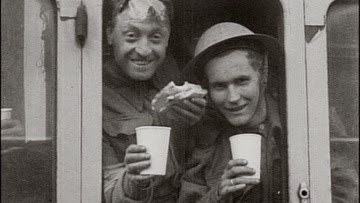  Some German, Hebrew, and French dialogue is translated with optically-printed subtitles (although the later titles have digitally-created subtitles burned in before the video-to-film transfers) and closed-captions convey the English dialogue but occasionally fall back on "[indistinct]" for a couple names and Hebrew phrases.
Extras
There are absolutely no extras on any of the discs, just the main menu and scene selection screens. While the documentaries are exhaustively informative about their subjects, one would have expected a featurette or a booklet on Moriah Films and the Simon Wiesenthal Center. 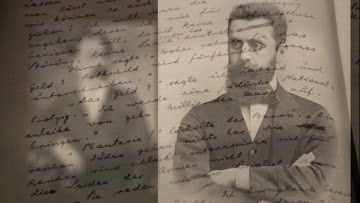  
Packaging
The packaging for this eleven disc set is rather unwieldy with a clear case the width of three single-disc Amaray cases holding a six hinged double-sided plastic holders for the discs. It is not connected to the spine of the case (at first, I thought it had broken off from the weight of the discs but there is no way of connecting it to the case). Although there is a fair amount of space between the disc holders, the discs held firm enough in shipping as it bounced around in a FedEx bubble wrap envelope inside of an oversized medium box (but you don't have to worry about cracking the disc or the spindle to get them out). The inside of the cover sports credits blocks for each of the films. 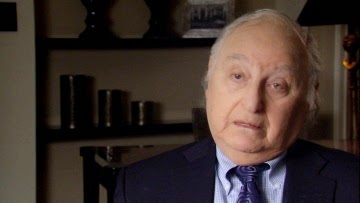  
Overall
|
|||||

|